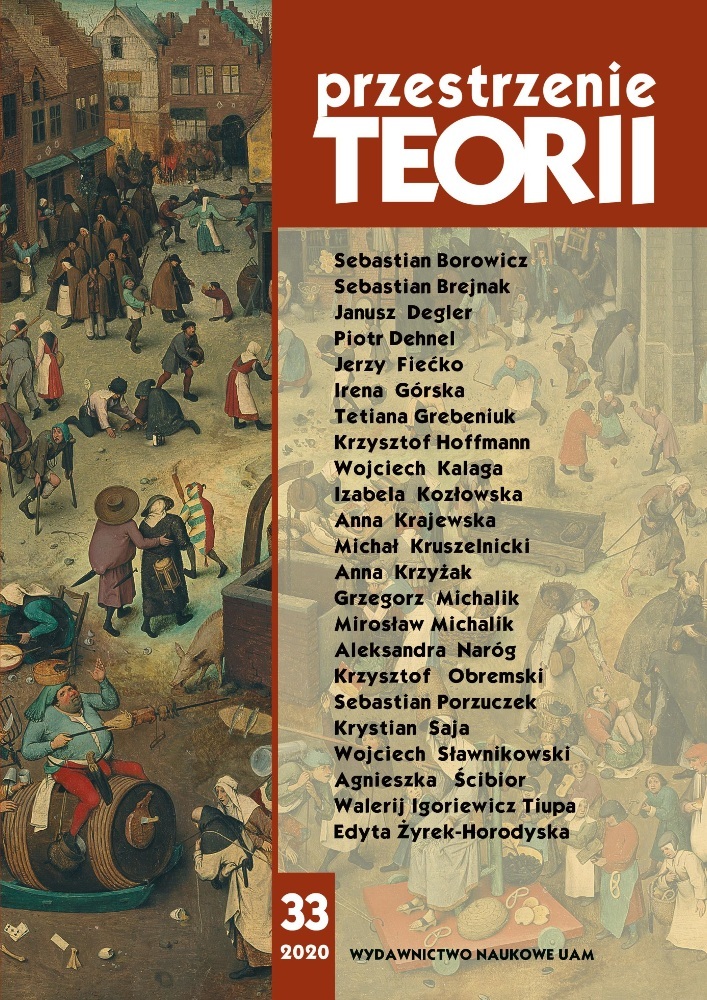Abstract
The paper raises the question of the extent to which Wittgenstein’s philosophy can be read as a philosophy of culture. The answer aims at grasping the conceptual bonds between three aspects of Wittgenstein’s thought: first, his taking both language and thinking to be expressions of a ‘form of life’ (or culture); second, his taking philosophical theories to result from some disorders that occur in ‘language games’; and third, his critique and rejection of the scientific and technical civilization. The paper advances the thesis that the task of bringing words back from their metaphysical to their everyday use – recommended by Wittgenstein – can be understood as a critique of scientism and culture dominated by scientific and technical rationality.
References
Cavell S., Declining Decline: Wittgenstein as a Philosopher of Culture, „Inquiry” 1988, 31, 3.
Cavell S., This New Yet Unapproachable America. Lectures after Emerson after Wittgenstein, Chicago 1989.
DeAngelis W.J., Ludwig Wittgenstein – A Cultural Point of View. Philosophy in the Darkness of this Time, Burlington 2007.
Hacker P.M.S., Wittgenstein’s Anthropological and Ethnological Approach, [w:] Philosophical Anthropology. Wittgenstein’s Perspective, ed. by J. Padilla Gálvez, Heusenstamm 2010.
Haller R., Was Wittgenstein Influenced by Spengler?, [w:] Questions on Wittgenstein, Omaha 1988.
Kienzler W., Wittgenstein und Spengler, [w:] Kulturen und Werte, hrsg. von J.G.F. Rothhaupt, W. Vossenkuhl, Berlin–Boston 2013.
Lurie Y., Wittgenstein on Culture and Civilization, „Inqury” 1989, 32 (4) (December).
Monk R., Wittgenstein’s Forgotten Lesson, „Prospect Magazine” 1999, 7.
Perloff M., Wittgenstein’s Ladder. Poetic Language and the Strangeness of the Ordinary, Chicago and London 1996.
Perloff M., Writing Philosophy as Poetry: Wittgenstein’s Literary Syntax, [w:] V. Munz, K. Puhl, J. Wang (eds.), Language and World, Part Two. Signs, Minds and Actions, Heusenstamm 2011.
Recollections of Wittgenstein, ed. by R. Rhees, Oxford 1984.
Schalkwyk D., Wittgenstein’s ‘Imperfect Garden’. The Ladders and Labyrinths of Philosophy as Dichtung, [w:] The Literary Wittgenstein (ed. by J. Gibson and W. Huemer), London and New York 2004.
Spengler O., Zmierzch Zachodu. Zarys morfologii historii uniwersalnej. Skrót dokonany przez Helmuta Wernera, przeł. J. Marzęcki, Warszawa 2001.
Von Wright G.H., Wittgenstein, Oxford 1982.
Wittgenstein L., Dociekania filozoficzne, przeł. B. Wolniewicz, Warszawa 2000.
Wittgenstein L., Kartki, przeł. S. Lisiecka, Warszawa 1999.
Wittgenstein L., Niebieski i Brązowy zeszyt, przeł. A. Lipszyc i Ł. Sommer, Warszawa 1998.
Wittgenstein L., Philosophical Investigation. The German Text, with an English Translation by G.E.M. Anscombe, P.M.S. Hacker and J. Schulte. Revised 4th Edition by P.M.S. Hacker and J. Schulte, Oxford 2011.
Wittgenstein L., The Big Typescript (fragmenty), przeł. P. Dehnel, Wrocław 2019.
Wittgenstein L., Tractatus logico-philosophicus, przeł. B. Wolniewicz, Warszawa 1997.
Wittgenstein L., Uwagi różne, przeł. M. Kowalewska, Warszawa 2000.
Wittgenstein L., Uwagi o podstawach matematyki, przeł. M. Poręba, Warszawa 2000.
Wittgenstein L., Philosophische Bemerkungen, [w:] Werkausgabe, Bd. 2, hrsg. von R. Rhees, Frankfurt am Main 1984.
License
Authors
Authors of texts accepted for publication in Przestrzenie Teorii are required to complete, sign and return to the editor's office the Agreement for granting a royalty-free license to works with a commitment to grant a CC sub-license.
Under the agreement, the authors of texts published in Przestrzenie Teorii grant the Adam Mickiewicz University in Poznań a non-exclusive, royalty-free license and authorize the use of Attribution-NonCommercial-NoDerivatives 4.0 International (CC BY-NC-ND 4.0) Creative Commons sub-license.
The authors retain the right to continue the free disposal of the work.
Users
Interested Internet users are entitled to use works published in Przestrzenie Teorii since 2015, for non-commercial purposes only, under the following conditions:
- attribution - obligation to provide, together with the distributed work, information about the authorship, title, source (link to the original work, DOI) and the license itself.
- no derivatives - the work must be preserved in its original form, without the author's consent it is not possible to distribute the modified work, such as translations, publications, etc.
Copyrights are reserved for all texts published before 2015.
Miscellaneous
Adam Mickiewicz University in Poznań retains the right to magazines as a whole (layout, graphic form, title, cover design, logo etc.).

